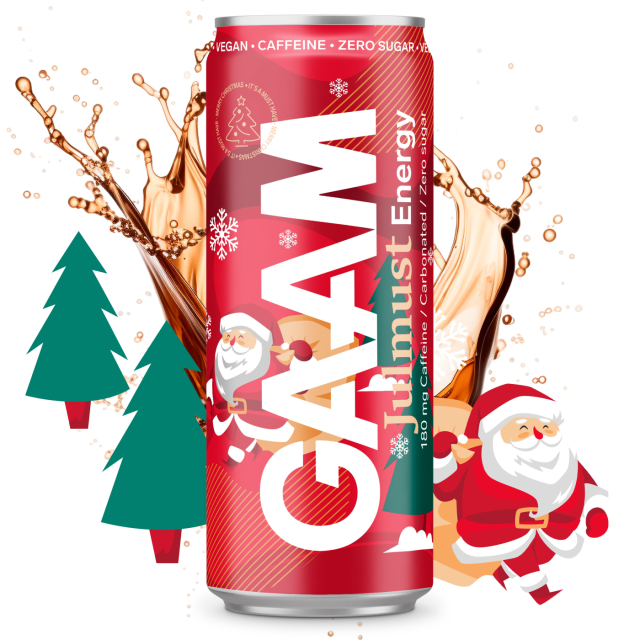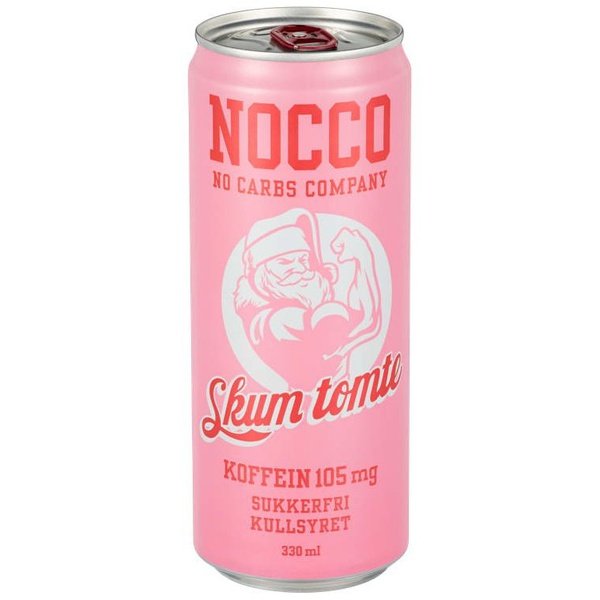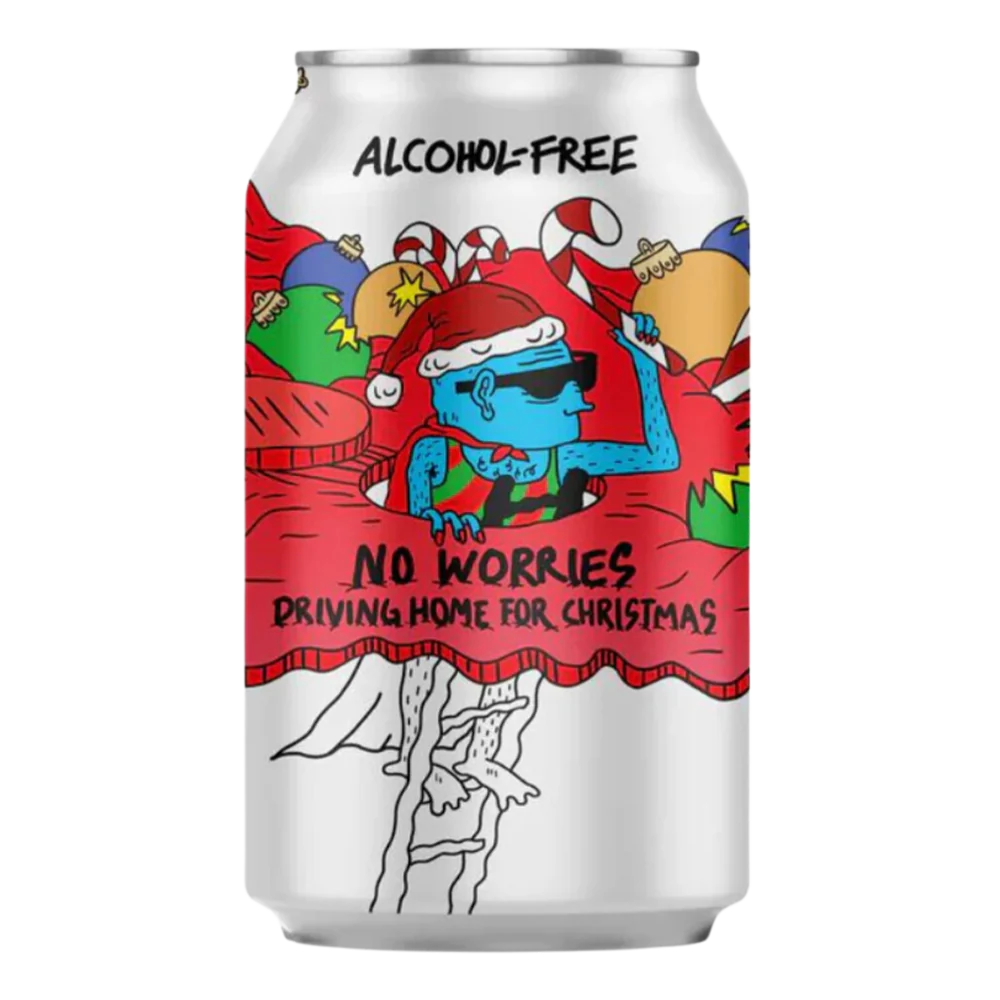Genetics and Caffeine Sensitivity
The perfect Christmas gift idea- energy drinks!
Why do energy drinks not affect me? For some individuals, energy drinks don’t pack the punch one would expect. The secret behind this could lie within our genetic makeup. Our bodies react to the caffeine in energy drinks differently, and sometimes genetics is the reason behind this muted response.

The Role of Adenosine Receptors
Adenosine receptors play a key role in how you feel after consuming caffeine. These receptors bind with adenosine, a chemical that promotes sleep, in our brains. Caffeine blocks this process, usually reducing feelings of tiredness. However, genetic variations can make some people less sensitive to caffeine. They have receptors that caffeine can’t easily block. This means no matter how much you drink, you might not feel much more awake.
The Impact of CYP1A2 Enzyme Variants
The enzyme CYP1A2 is vital in how our body processes caffeine. About 95% of caffeine is broken down by this liver enzyme. Here’s where genetics come in again – there are different variants of the CYP1A2 enzyme. Some variants break down caffeine quickly, reducing its stimulating effects. Depending on which variant you have, energy drinks may not affect you much. Knowing about these genetic factors can shed light on why energy drinks don’t give you that expected surge of energy.
Building a Caffeine Tolerance
Building a tolerance to caffeine is more common than you might think. Here’s how it happens and what signs to watch for.
How Consumption Patterns Lead to Tolerance
Frequent and increased consumption of caffeine can lead to tolerance. This means the more energy drinks you consume, the more your body gets used to the caffeine. Over time, the same amount of caffeine doesn’t give you the same energy boost. For instance, if you’re drinking multiple cans of energy drinks every day, your body’s response to caffeine diminishes. This is because the adenosine receptors in your brain, which caffeine blocks to reduce tiredness, become less sensitive.
Recognizing the Signs of Caffeine Tolerance
How do you know if you’ve built a caffeine tolerance? Look out for these signs:
- Needing more caffeine to feel alert: You may find that your usual one or two cans of energy drinks are no longer effective.
- Reduced effect over time: Initially, an energy drink might have kept you awake for several hours. Now, it hardly affects you.
- Headaches or irritability when not consuming caffeine: These withdrawal symptoms can indicate that your body is dependent on caffeine.
By understanding these patterns and signs, you can manage your caffeine intake more effectively. Reducing consumption or taking periodic breaks from caffeine can help reset your body’s sensitivity to it.
The Potential Health Implications of Energy Drinks
While energy drinks can offer a quick energy boost, they also pose potential health risks, particularly concerning cardiovascular health.
Cardiovascular Risks Associated with High Caffeine Intake
Why do energy drinks not affect me? High caffeine intake from energy drinks can lead to several cardiovascular issues. The stimulant effect of caffeine increases heart rate and blood pressure, which can strain the cardiovascular system over time. Notable risks include palpitations, hypertension, and in extreme cases, heart attacks.
Regular consumption of high-caffeine energy drinks can also disrupt heart rhythms. This can cause arrhythmias, which are irregular heartbeats that might feel like skipped beats or a fluttering sensation in the chest. More severe cases could lead to more dramatic forms of cardiac irregularities such as atrial fibrillation.
Furthermore, the combination of high caffeine and sugar levels can contribute to weight gain, which is another risk factor for cardiovascular diseases. Overweight individuals often face greater stresses on their heart and vascular system.
Comparing Coffee and Energy Drinks
Choosing between coffee and energy drinks involves understanding their caffeine content and how it affects the body. A typical eight-ounce cup of coffee contains about 80 mg of caffeine, which is less than the 100-150 mg often found in an equivalent-sized energy drink.
Moreover, coffee generally lacks the high sugar and additive content found in many energy drinks. These additives can lead to other health issues and may intensify the stimulant effects of caffeine. On the other hand, opting for a smoothie with fruits and vegetables can be a healthier method to gain sustained energy without adverse health effects.
While coffee might seem like a healthier choice, it’s essential to consume it in moderation to avoid potential health risks associated with excessive caffeine intake.

Alternatives to Caffeine for Energy Boosts
When energy drinks fail to give you that needed boost, consider natural alternatives. Unlike caffeine, these options can provide a more balanced and sustained source of energy, without the spikes and crashes often associated with high caffeine intake.
Nutritious Snacks for Sustained Energy
Opting for wholesome snacks can help keep your energy levels steady throughout the day. Here are some top choices:
- Nuts and Seeds: Almonds, walnuts, and pumpkin seeds are great for a quick nibble. They’re packed with healthy fats, proteins, and fiber.
- Fruits: Bananas, apples, and oranges not only satisfy your sweet tooth but also provide natural sugars and fibers.
- Yogurt: A bowl of Greek yogurt, with a handful of berries, can offer protein and probiotics.
- Whole Grains: Snack on whole grain crackers or a slice of whole-grain bread with avocado for longer-lasting energy.
These snacks are not only nutritious but also easy to prepare and consume, making them convenient options for a busy day.
Benefits of Exercise and Outdoor Activities
Physical activity is another excellent way to boost your energy naturally. Here’s how moving more can help:
- Increases Energy Levels: Regular exercise helps improve endurance and muscle strength, translating to more energy.
- Boosts Overall Mood: Exercise releases endorphins, which are chemicals in the brain that act as natural mood lifters.
- Improves Sleep Quality: Being active during the day can help you fall asleep faster and deepen your sleep.
Simply taking a brisk walk or having a short workout session during a break can make a significant difference in how energetic you feel. Additionally, spending time outdoors, especially in green spaces, can increase your energy levels and reduce feelings of fatigue.
Understanding and Managing Caffeine Dependence
Recognizing caffeine dependence is crucial for managing energy levels. If you rely heavily on energy drinks, it’s important to understand how to manage this dependence.
Strategies to Reduce Caffeine Intake
To lower caffeine dependence, consider these strategies:
- Gradual Reduction: Slowly cut back on caffeine to minimize withdrawal effects.
- Substitute: Swap out energy drinks with lower-caffeine options like tea.
- Water Up: Increase water intake to help reduce cravings.
- Consistent Schedule: Try to consume caffeine at the same times each day.
- Mindful Choices: Choose caffeine-free beverages, especially later in the day.
By accepting and applying these tactics, you may notice improvements in your reaction to caffeine when you do choose to indulge.
Coping with Withdrawal Symptoms
Cutting down on caffeine can lead to withdrawal symptoms. Use these methods to cope:
- Stay Hydrated: Drink plenty of water to ease headaches.
- Rest More: Allow time for extra sleep as your body adjusts.
- Healthy Snacks: Eat balanced snacks to maintain energy levels.
- Light Exercise: Engage in light activities to reduce irritability.
- Patience: Understand that withdrawal is temporary and patience is key.
By following these steps, you can mitigate withdrawal symptoms and regain a healthier energy balance without heavy reliance on energy drinks.
The Importance of Sleep in Combating Fatigue
Sometimes we reach for an energy drink hoping to bypass tiredness. Yet, sleep is key to truly overcoming fatigue. Energy drinks can mask drowsiness but can’t replace needed rest. If your energy drink doesn’t perk you up, your body likely needs sleep, not caffeine.
The Limitations of Caffeine as a Sleep Substitute
Why do energy drinks not affect me? Caffeine can’t offer the restorative benefits of sleep. It may briefly hinder sleepiness, but it doesn’t offer the deep rest your brain and body require. Using energy drinks as a sleep substitute can lead to a cycle of dependency and further sleep disruption.

Tips for Better Sleep Hygiene
Why do energy drinks not affect me? Good sleep hygiene means habits that promote consistent, uninterrupted sleep. Here are some tips:
- Regular Schedule: Go to bed and wake up at the same times each day.
- Wind Down: Spend 30 minutes before bed doing calming activities.
- Comfortable Environment: Ensure your bedroom is quiet, dark, and cool.
- Limit Screen Time: Turn off electronic devices an hour before sleep.
- Avoid Caffeine: Don’t consume energy drinks or caffeine late in the day.
By following these sleep hygiene practices, you can improve your sleep quality and reduce the need for energy drinks.
